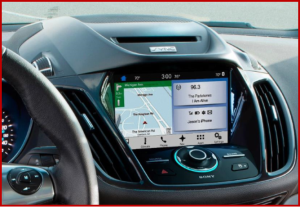 Ford Motor Company said today that it is the first automaker to join the Electronic Industry Citizenship Coalition, a nonprofit group of electronics companies aiming at improving the “social, environmental and ethical conditions of their global supply chains.”
Ford Motor Company said today that it is the first automaker to join the Electronic Industry Citizenship Coalition, a nonprofit group of electronics companies aiming at improving the “social, environmental and ethical conditions of their global supply chains.”
The electronics industry has had myriad problems with manufacturing conditions, exploitation of workers and suicides in offshore plants. Whether any significant changes occur in worker rights in an industry driven almost entirely by cost cutting remains to be seen.
The announcement comes at a time when Apple, with a questionable offshore manufacturing record, is defying a U.S. Federal court order to unlock the iPhone – made offshore – of a known terrorist in the San Bernardino murders that the FBI is investigating.
Joining the coalition “strengthens Ford’s commitment to respect human rights and improve basic working conditions at its global supplier facilities,” the Number Two U.S. automaker claimed in a statement. Ford, of course has a bloody history fighting worker rights and UAW organization in its past.
The EICC is comprised of more than 110 electronics companies representing 17 business sectors. As the first automaker member, Ford Motor joins a group made up of about 15% of its own suppliers.
EICC membership requires Ford to identify its own high-risk facilities, as well as supplier facilities, and to conduct audits on at least 25% of those. Ford agrees to actively support the EICC code of conduct in its own operations. It’s not clear what Ford will do with its vast global supply chain.
Ford did not immediately respond to questions about whether it has terminated or changed suppliers recently over its statement that said in part, “Ford’s commitment to respect human rights and improve basic working conditions at its global supplier facilities.”
A Ford spokesperson, eventually days later, offered this: “In the past, when charcoal produced in Brazil with the use of slave labor had found its way into the sub-tiers of our supply chain, we worked directly with our suppliers to eliminate the issue. This ultimately required a resourcing action within the supply chain, where in 2006, a supplier was desourced.”
That’s a long time ago.
“Since 2003, Ford has been training and auditing suppliers on our expectations for human rights, working conditions, business ethics and the environment,” claimed Mary Wroten, senior manager, Ford global purchasing supply chain sustainability.
As you might surmise, press releases are easy. Changing suppliers or business practices are a lot harder.

